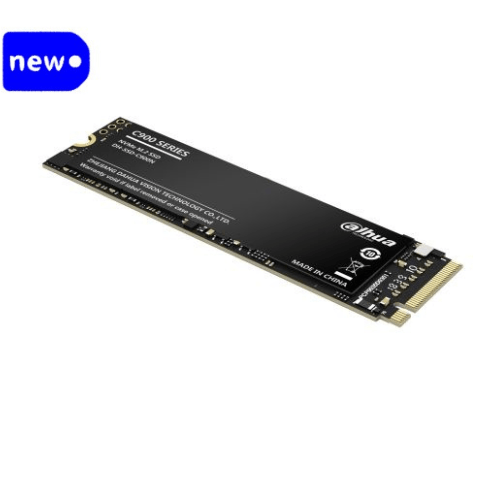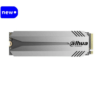Dahua 256GB NVMe M.2 PCIe Gen4 SSD Price in Kenya
Dahua 256GB NVMe M.2 PCIe Gen4 SSD Technical Specifications
The Dahua 256GB NVMe M.2 PCIe Gen4 SSD represents the pinnacle of storage technology, offering blazing-fast speeds in a compact form factor. This cutting-edge drive harnesses the power of PCIe Gen4 to deliver performance that pushes the boundaries of consumer-grade storage, making it an ideal choice for enthusiasts and professionals who demand the absolute best.
Performance Overview
- Capacity: 256GB
- Form Factor: M.2 2280
- Interface: PCIe Gen4 x4, NVMe 1.4
- Sequential Read: Up to 5,000 MB/s
- Sequential Write: Up to 4,000 MB/s
- Random Read (4K): Up to 600,000 IOPS
- Random Write (4K): Up to 550,000 IOPS
Key Features
- PCIe Gen4 Interface: Doubles the bandwidth of Gen3 for extreme speeds
- Advanced NVMe 1.4 Protocol: Optimized for ultra-low latency and high throughput
- Compact M.2 Form Factor: Ideal for space-constrained builds and ultrabooks
- Dynamic SLC Caching: Maintains high write speeds during intensive operations
Pros and Cons
Pros:
- Exceptional read/write speeds for demanding workloads
- Future-proof with PCIe Gen4 technology
Cons:
- Premium price point compared to Gen3 NVMe SSDs
- Capacity may be limiting for users with extensive storage needs
Ideal Usage Scenarios
The Dahua 256GB NVMe M.2 PCIe Gen4 SSD excels in:
- High-end gaming: Near-instantaneous game loads and level transitions
- Professional content creation: Smooth 4K/8K video editing and quick exports
- Data science and AI workloads: Rapid processing of large datasets
- OS and application hosting: Lightning-fast boot times and software launches
Target Audience
This Dahua NVMe Gen4 SSD is particularly well-suited for:
- Enthusiasts and professionals demanding cutting-edge storage performance
- Gamers looking to eliminate storage bottlenecks
- Content creators working with high-resolution media and complex projects
- Data scientists and researchers handling massive datasets
The Dahua 256GB NVMe M.2 PCIe Gen4 SSD represents a quantum leap in storage technology, offering speeds that were unthinkable just a few years ago. Its PCIe Gen4 interface provides double the bandwidth of Gen3, allowing for truly remarkable data transfer rates that can transform workflows and user experiences.
For gamers, this drive enables near-instant game loads and seamless open-world experiences, potentially giving a competitive edge in fast-paced titles. Content creators will appreciate the ability to scrub through 4K or even 8K video timelines without stuttering and export large projects in record time. In data-intensive applications, the drive’s exceptional IOPS and throughput can dramatically reduce processing times for complex computations, potentially saving hours in machine learning or scientific simulation workloads.
While the 256GB capacity may be limiting for users with extensive storage needs, it’s an ideal size for a blazing-fast boot drive or for accelerating frequently used applications. The compact M.2 form factor also makes it perfect for small form factor builds or ultra-thin laptops that support PCIe Gen4.
It’s worth noting that to fully leverage the capabilities of this drive, you’ll need a motherboard with PCIe Gen4 support. For users with older systems, this SSD is still backward compatible with PCIe Gen3, but will operate at Gen3 speeds.
For those looking to build a comprehensive storage solution, this NVMe SSD pairs excellently with our range of high-capacity HDDs for bulk data storage. If you’re considering a full system upgrade to take advantage of PCIe Gen4 speeds, explore our selection of cutting-edge laptops and desktops designed to harness the full potential of this next-generation storage technology.
While the Dahua 256GB NVMe PCIe Gen4 SSD commands a premium price, its performance benefits are undeniable for users who push their systems to the limit. It’s an investment in future-proof technology that can significantly enhance your computing experience, whether you’re a competitive gamer, a professional content creator, or a data scientist dealing with complex, data-intensive workloads.













 No products in the cart.
No products in the cart. 
Reviews
There are no reviews yet.